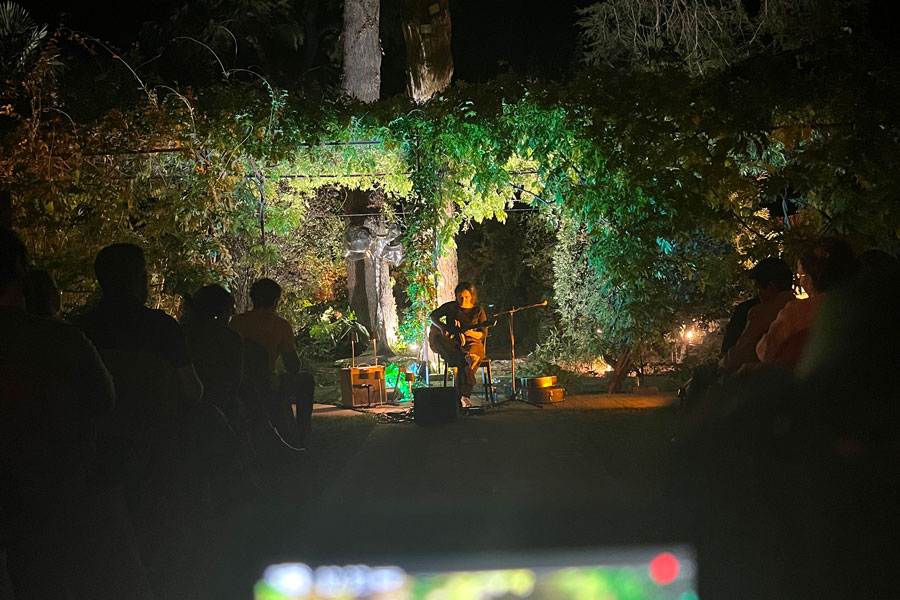We could not have imagined a more beautiful finale to the Nits de Libèl·lula Contemporary Music Festival at Can Prunera. All credit goes to Leire Corpas, who gave us an intimate, mystical and truly entertaining concert in the sculpture garden, surrounded by more than seventy people. In recent months, this space has welcomed Magí Garcías, Clara i Pere Fiol, Sterlin and Alanaire, always offering the audience a symbiosis between joy and calm, musical enjoyment and quiet reflection.
Leire introduced the concert with warm words and explained her creative methodology: working with what you have, or to be more precise, this is what you have; a nuance that includes the self-assurance and naturalness with which she plays the guitar while, incidentally, touching our souls. A humble disciple of Ralph Towner and Wolfgang Muthspiel, she composed some unreleased songs that we lucky listeners heard for the first time, but she also wrote the first chapters of her own musical story. It was the first time Leire had played her own songs going solo, with all that that entails. There are always doubts in creation, reflections on whether or not what has been created will be liked, the eternal fear of failure or success, which are both eternal impostors, as Borges reminds us. Leire did not shy away and played, boy did she play, creating an unparalleled atmosphere around her that healed us once again.
And then came Poemo by Jesús Lizano. A poem that alternates and changes all the genders of words. The bed is now the beda, tragedy is now trageda. Leire brought the poem to life with exquisite jazz accompaniment as she recited:
Me asomé a la balcona y contemplé la ciela poblada por los estrellos.
Sentí fría en mi caro, me froté los monos y me puse la abriga y pensé:
qué ideo, qué ideo tan negro.
Diosa mía, exclamé: qué oscuro es el nocho y que sólo mi almo y perdido entre las vientas y entre las fuegas, entre los rejos.
El vido nos traiciona, mi cabezo se pierde, qué triste el aventuro de vivir.
Y estuvo a punto de tirarme a la vacía… Qué poemo.
The smiles among the crowd were instantly noticeable, along with the occasional burst of laughter, amazement and admiration for Leire’s daring, which could have gone wrong, of course, but was quite the opposite. It was her peak, her great mountain climbed, and from there she never came down. We have been infected by her art. Thank you, Leire, for making us smile and feel. Long live to your music.
